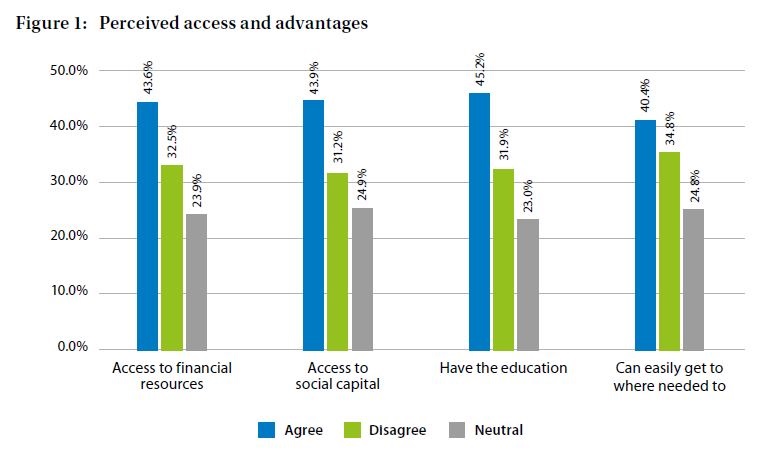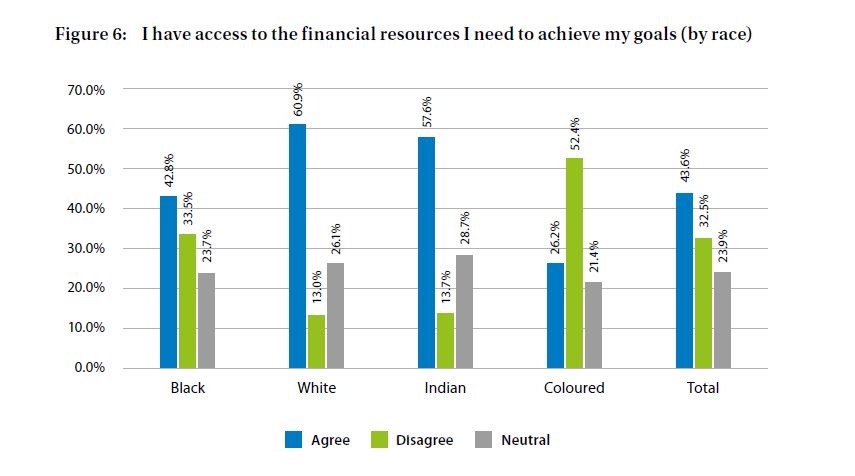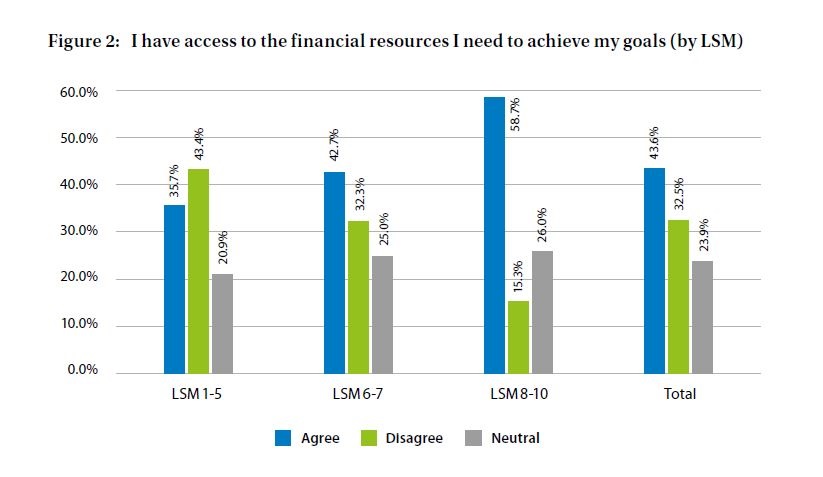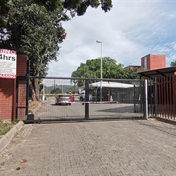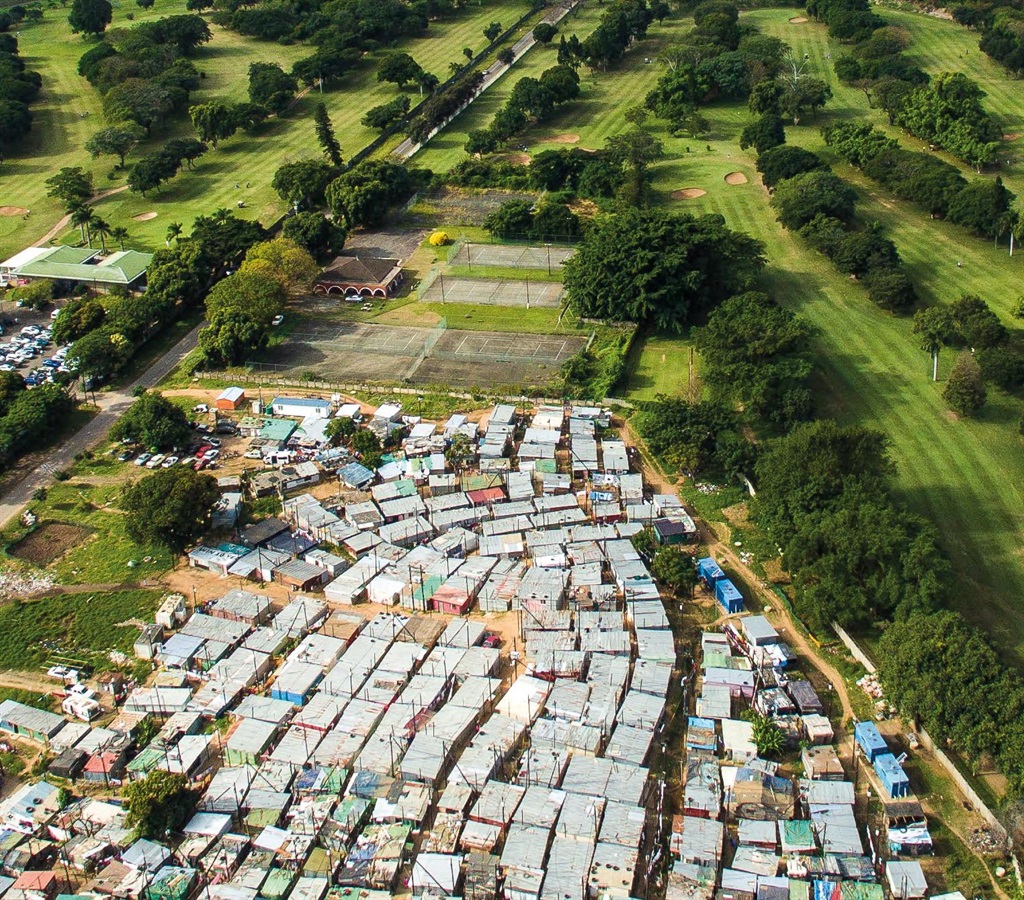
Only 43.6% of South Africans feel they have access to the financial resources they need. This is according to the findings in 2015 South African Reconciliation Barometer which was released today.
Other findings show that 45.2% of South Africans believe that have access to the education they need – a clear indication that more than half of those surveyed still feel like they are receiving inadequate education. This figure reflects the motivation behind the Fees Must Fall movement, which has been dominating news headlines throughout the year as universities buckle under the pressure of student protests, many of which have turned violent.
“During the course of 2015-2016, the frustrations resulting from vast socioeconomic inequalities found [and is still finding] an outlet in the national student protests for free higher education in South Africa. Under the banner of “#FeesMustFall”, multiple layers of advantage and disadvantage, of access and non-access, of inclusion and exclusion became apparent –prompting for the need of a much deeper understanding of South Africans’ lived realities of socioeconomic inequalities, as well as the obstacles and aids to social mobility,” the Institute for Justice and Reconciliation, who conducted the survey, said.
The survey is an annual measure of public opinion on national unity reconciliation conducted by the non-governmental institution, which was established in 2000 in the wake of the Truth and Reconciliation Commission, to ensure that the lessons of South Africa’s successful transition to democracy remain fundamental principles central to government and society as the country moves forward.
The survey was conducted by randomly selecting households across the country with a sample of 2 219 respondents adequately representing the adult population of the country.
Findings regarding perceptions of having the required education to achieve personal goals show differences among racial groups, with 77% of white respondents, 56% of Indian respondents, 42.4% of black respondents and only 29.8% of coloured respondents feeling that they have the education they need to achieve their goals.
• 43.6% of South Africans feel they have access to the financial resources they need, 43.9% believe they have access to the groups of people (or social capital) they need, 45.2% believe they have the education they need, and 40.4% feel they can easily get to where they need in order to achieve their personal goals.
• The differences in responses among Living Standard Measure (LSM) categories, however, are stark when it comes to perceptions of having the required education to achieve self-identified goals, with more than two-thirds (69%) of higher LSM category, and only a third (33.3%) of lower LSM category respondents agreeing that they have access to the education they need.
• Findings regarding perceptions of having the required education to achieve personal goals show differences among racial groups, with 77% of white respondents, 56% of Indian respondents, 42.4% of black respondents and only 29.8% of coloured respondents feeling that they have the education they need to achieve their goals.
• Findings regarding the perceptions (in terms of access and advantages) of unemployed respondents who are not looking for a job show that this group of people feels excluded on multiple fronts, with 68.4% of respondents from this category disagreeing that they are able to easily get to where they need to be in order to achieve their goals, 57.2% disagreeing that they have the education they need, 59.3% disagreeing that they have access to the social capital they need, and 59.4% of respondents in this category disagreeing that they have the financial resources they need to achieve their goals.
| |||||||||||||
| |||||||||||||




 Publications
Publications
 Partners
Partners




